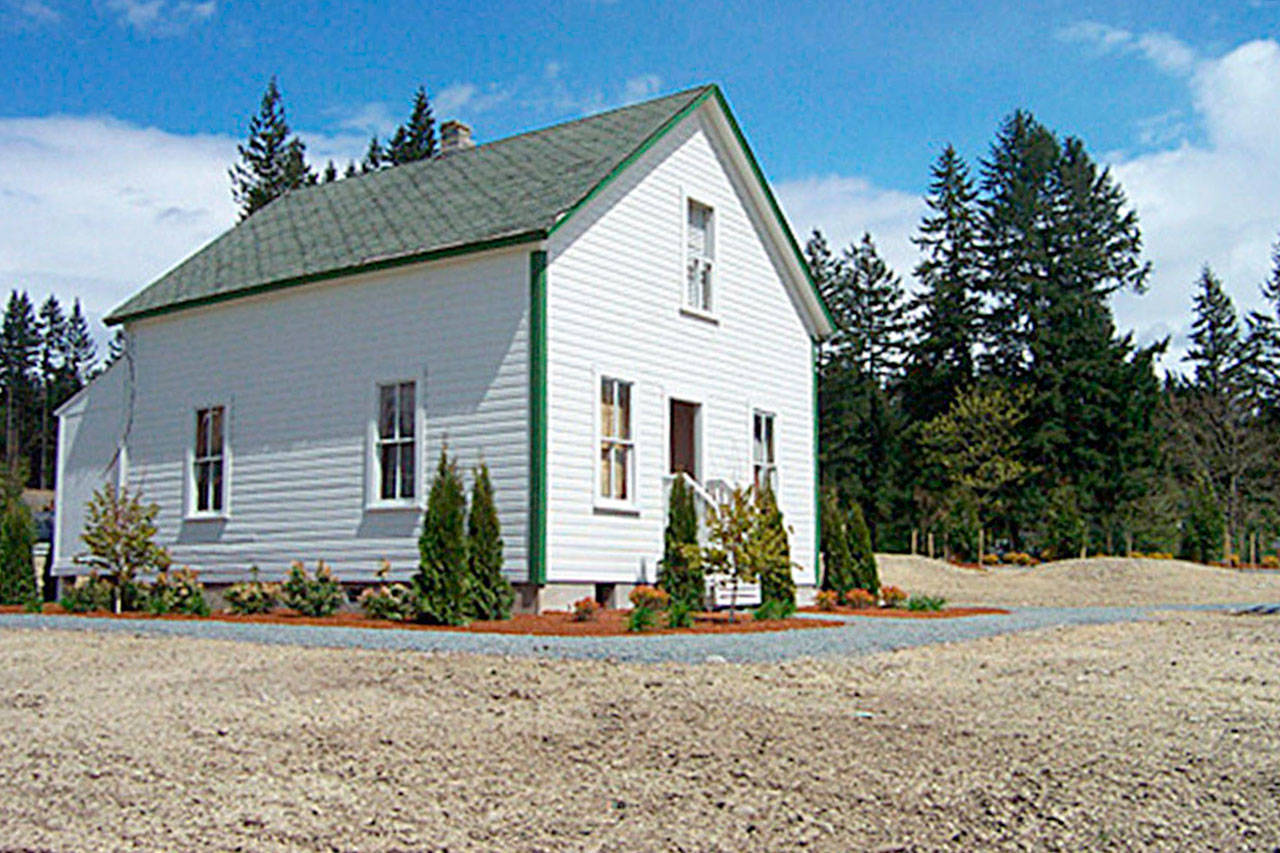The 110-year-old Baker House in Sammamish was prepared for demolition this week after a hearing examiner decision reversed the house’s designation as a historic landmark.
The reversal of the landmark designation came after the Laurels neighborhood homeowners association (HOA) appealed the designation to the city hearing examiner, who concluded that the Baker House did not qualify for landmark status. The house is located in the community park of the Laurels neighborhood, located on Southeast 24th Street, between Beaver Lake and Pine Lake.
The Baker House, built in 1908, was purchased by Earl and Minnie Baker in 1914. Earl, Minnie and their son Ed moved to Sammamish so that Ed would be able to access special education services from the Issaquah School District. The family moved to Sammamish after the Seattle School District refused to serve their son and Ed became one of the first special education students to go through the Issaquah district.
The land the house was built on was purchased in 2001 by developer Centex, who built the residential area now known as the Laurels. During development, the house was moved to another part of the property next to the neighborhood’s playground. When the developer left, the house became property of the HOA.
Matthew Rubin, a board member of the Laurels HOA, said the homeowners were concerned with the poor state of the house and the costs of restoration. Due to poor upkeep and years of deterioration, Rubin said the house was considered a hazard near the park and the cost of restoration was “astronomically high.”
“The deterioration got so bad we had to figure something out and take the lead. It’s our park, so we researched to verify we were the owners of the house,” he said. “Once we verified all of that we needed to take control of the situation to make the house safe. We looked into the options, demolition or improving it. It was simple, it had to be demolished.”
In June 2017, the HOA group applied for a demolition permit to remove the house. In the same month, the Sammamish Heritage Society (SHS) nominated the Baker House for landmark designation and began a process of public hearings to collect feedback for the designation. On Oct. 23, the Landmark Commission officially designated the house a city landmark.
Doug Eglington, Sammamish landmark commissioner and SHS member, said the designation was awarded to the house based on the era of architecture it represented. Eglington recused himself from the vote as he helped to write the nomination application for the house, but the designation was awarded by the rest of the commission.
“The main criteria was it was a rare, intact example of early 20th century domestic architecture,” Eglington said.
According to the hearing examiner’s March 5 decision, the Laurels HOA appealed the designation stating that the commission “erroneously interpreted and applied” the code provisions. City code states that if a structure had been moved it cannot qualify for a landmark designation unless it meets one of eight additional provisions. The commission argued that it did meet one of the provisions stating the nominee would embody a type, period or style of design or construction.
The document states that the Baker House designation was justified as “significant primarily for its architectural value, namely as a vernacular farmhouse that is an exceedingly rare resource on the Sammamish Plateau.”
When the examiner compared the house to other examples in the city of “vernacular farmhouses” listed by the SHS, he did not find a consistent style. Since he didn’t agree with the justification used to meet the provision, he found that the house could not be a landmark since it had been moved from its original location.
“The Examiner agrees with Laurels HOA that the Baker House currently has no architectural value. If the examples of ‘vernacular farmhouses’ listed by the SHS and the Commission are actually vernacular farmhouses, then a vernacular farmhouse has no distinctive architectural style as every one of their examples evidences different stylistic characteristics,” he wrote. “The Examiner concurs with Laurels HOA that the Commission committed an error of law in concluding that the Baker House could qualify for landmark status even though it had been moved.”
Eglington said that fighting battles over the preservation of old buildings can be tough for nonprofit volunteer organizations due to the legal fees involved in appeals. He also stated that it is important for the city to step up and advocate for the preservation of history within city limits.
“If the money they spent on legal costs in reversing the decision and seeking the demolition permit had been applied to getting a grant or restoring and preserving the building, we wouldn’t be where we are,” he said.
After the landmark status was removed, the Laurels HOA received their demolition permit on April 27. The HOA doesn’t have concrete plans for the space, but Rubin said they are looking at options for the future.
“It’s in our community park and at the current time we are going to put a lawn over it, but down the road we have a lot of different options we can do with the added space in our park,” he said. “In the short term we want to get our park back open.”
Talk to us
Please share your story tips by emailing editor@kentreporter.com.
To share your opinion for publication, submit a letter through our website https://www.kentreporter.com/submit-letter/. Include your name, address and daytime phone number. (We’ll only publish your name and hometown.) Please keep letters to 300 words or less.

